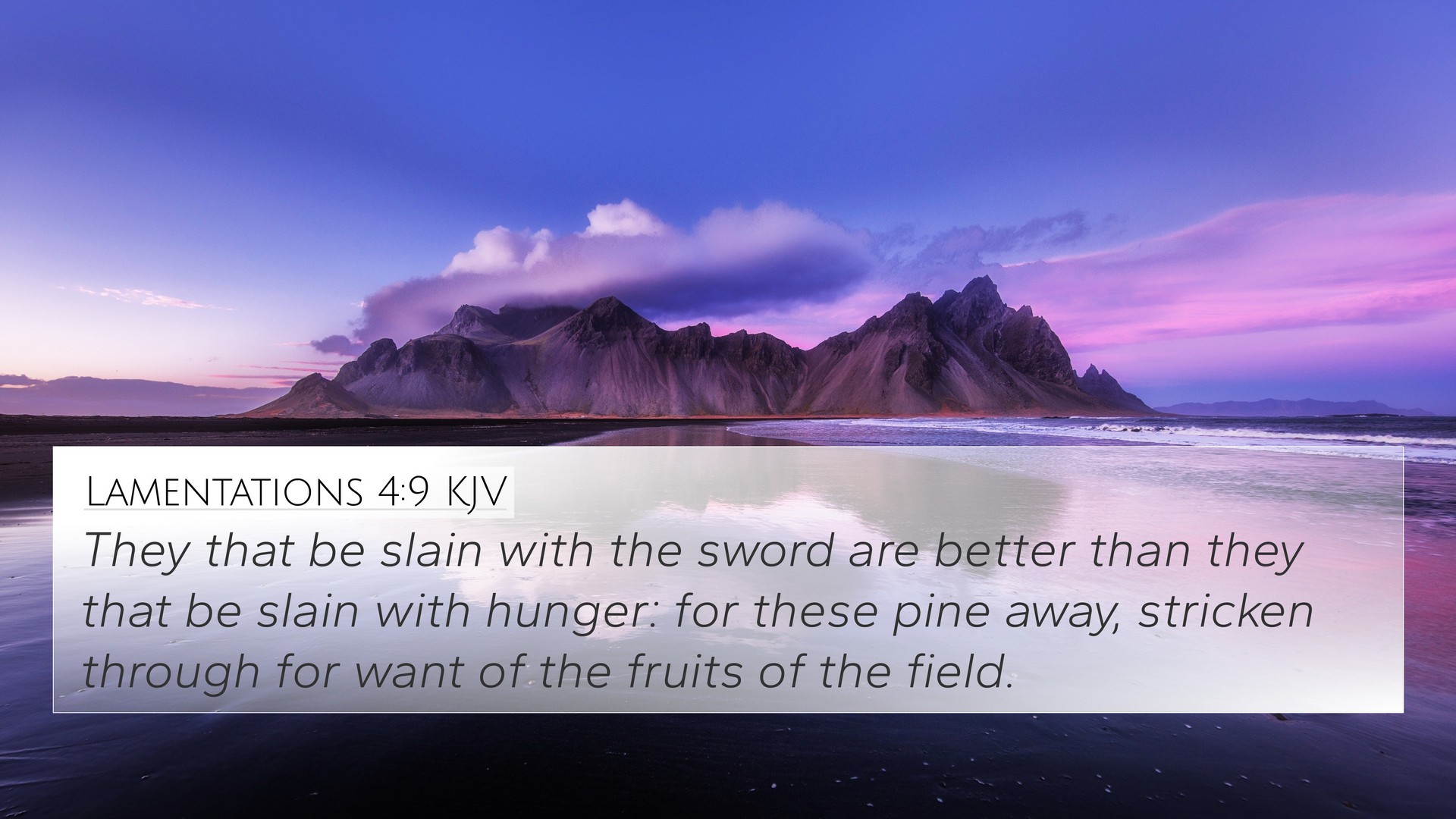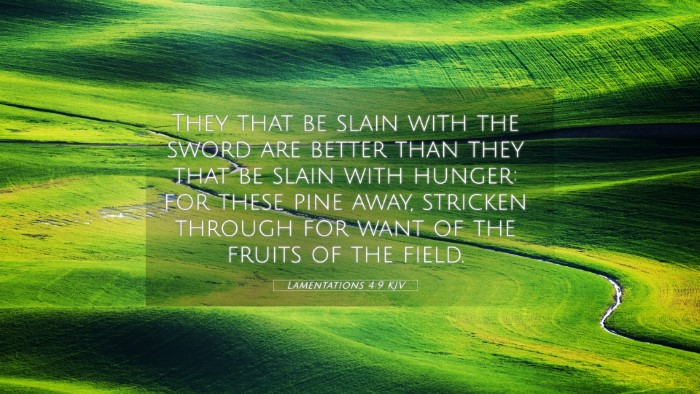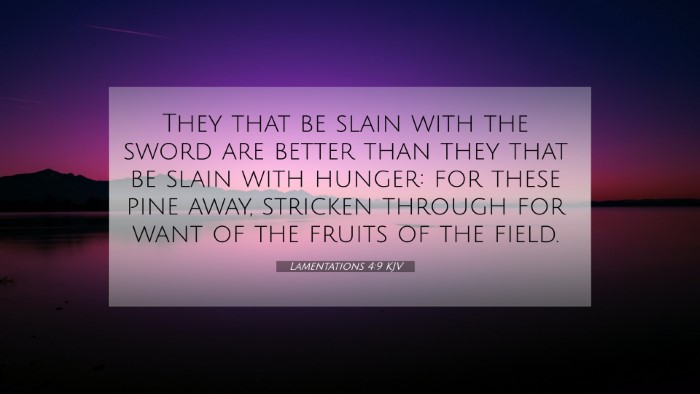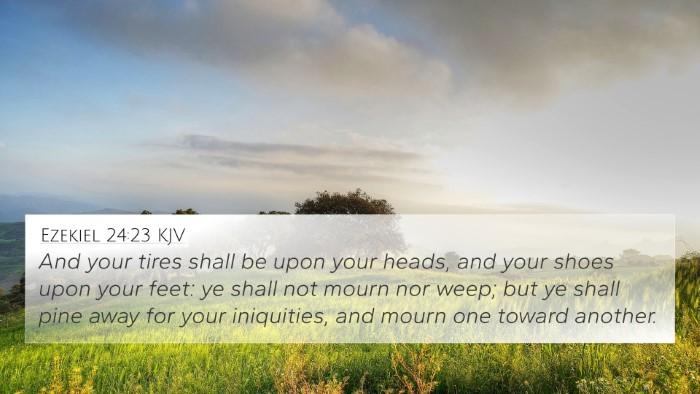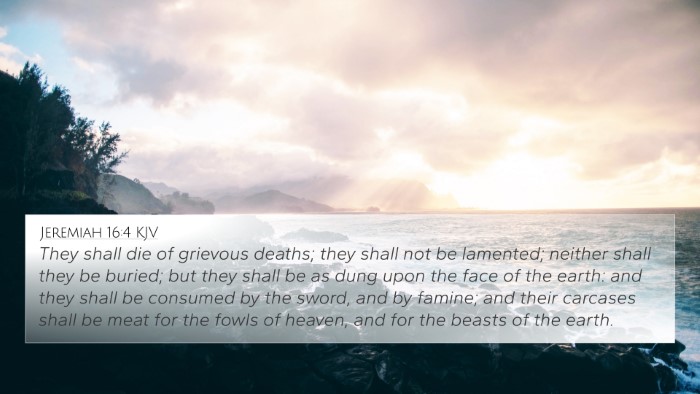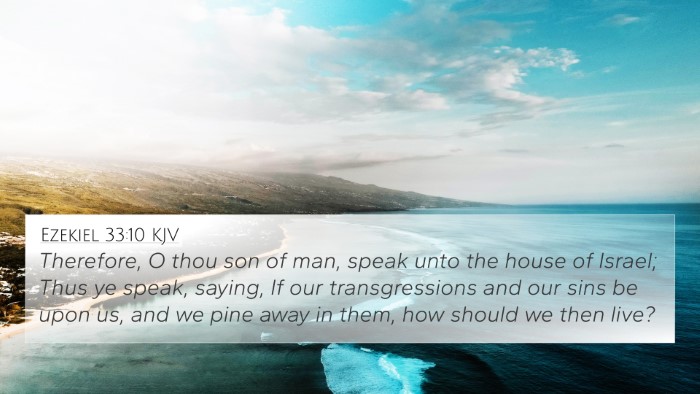Lamentations 4:9 Explained
Bible Verse: Lamentations 4:9 states, "They that be slain with the sword are better than they that be slain with hunger: for these pine away, stricken through for want of the fruits of the field."
This verse reflects the deep suffering and despair of the people of Judah during the Babylonian siege. It highlights the horrors of starvation as more agonizing than death by sword. Here, the anguish of those who died from hunger is emphasized, portraying their slow and painful demise.
Context of Lamentations
The Book of Lamentations, traditionally attributed to the prophet Jeremiah, is a poetic reflection on the devastation that followed the fall of Jerusalem. Through its five chapters, it expresses profound grief and sorrow over the destruction of the city and the suffering of its inhabitants.
Detailed Explanation of Lamentations 4:9
Lamentations 4:9 presents a stark contrast between two forms of death:
- Death by Sword: Immediate and often considered a more honorable death in battle.
- Death by Hunger: Slow, agonizing, and humiliating, akin to complete despair.
According to Matthew Henry, this verse illustrates the desperation that leads one to prefer a quicker death to the prolonged suffering of starvation. The emotional weight of hopelessness permeates this lamentation, resonating with the collective trauma experienced by the people.
Adam Clarke emphasizes the comparison as a lament for lost blessings. The "fruits of the field" symbolize essential sustenance and the devastation of the land, which represents God's judgment and the consequences of sin. The longing for what was once plentiful resonates deeply in the context of divine retribution.
Albert Barnes interprets “pine away” as indicative of those who experienced a slow deterioration due to dire circumstances, shifting the focus from mere physical survival to the heart-wrenching psychological toll of famine. The call here is to recognize the severity of their plight.
Thematic Connections
This verse can be linked to various other biblical texts that resonate with its themes of suffering and divine judgment:
- Deuteronomy 28:48: "...therefore shalt thou serve thine enemies which the Lord shall send against thee..." - exemplifies the consequences of disobedience.
- Psalm 37:19: "They shall not be ashamed in the evil time: and in the days of famine they shall be satisfied." - contrasts the fates of the righteous and the wicked.
- Isaiah 51:19: "These two things are come unto thee; who shall be sorry for thee..." - highlights the calamities faced by Jerusalem.
- Jeremiah 14:3-4: "And their nobles have sent their little ones to the waters: they came to the pits and found no water..." - further emphasizes the dire situation.
- Ezekiel 5:16-17: "When I send upon them the evil arrows of famine..." - speaks to the same judgement theme.
- Lamentations 2:19: "Arise, cry out in the night: in the beginning of the watches pour out thine heart like water before the face of the Lord..." - conveys the importance of lamentation.
- Matthew 24:7: "For nation shall rise against nation, and kingdom against kingdom: and there shall be famines..." - connects to the theme of suffering leading to divine fulfilment in Christ.
Cross-Referencing Biblical Texts
This verse invites a multifaceted approach to understanding the suffering of its context:
- Use a Bible concordance to explore related verses about famine and suffering.
- Engage in Bible cross-reference studies to observe themes across different books.
- Look for comprehensive Bible cross-reference materials that include thematic discussions on divine punishment.
- Employ cross-reference Bible study tools to delve into the connections between the prophets’ warnings and their fulfillments.
- Investigate Bible chain references for deeper connections across scripture.
Conclusion
Lamentations 4:9 serves as a poignant reminder of the consequences of sin and the depth of human suffering. Through combined interpretations, we can grasp the emotional weight that this verse carries, encouraging a reflective study on how despair and hope interlace throughout Scripture.
By understanding the connections between Bible verses, we enhance our studies, learning to recognize the overarching narratives that Scripture weaves together, ultimately drawing us closer to the heart of God amidst His judgments.
